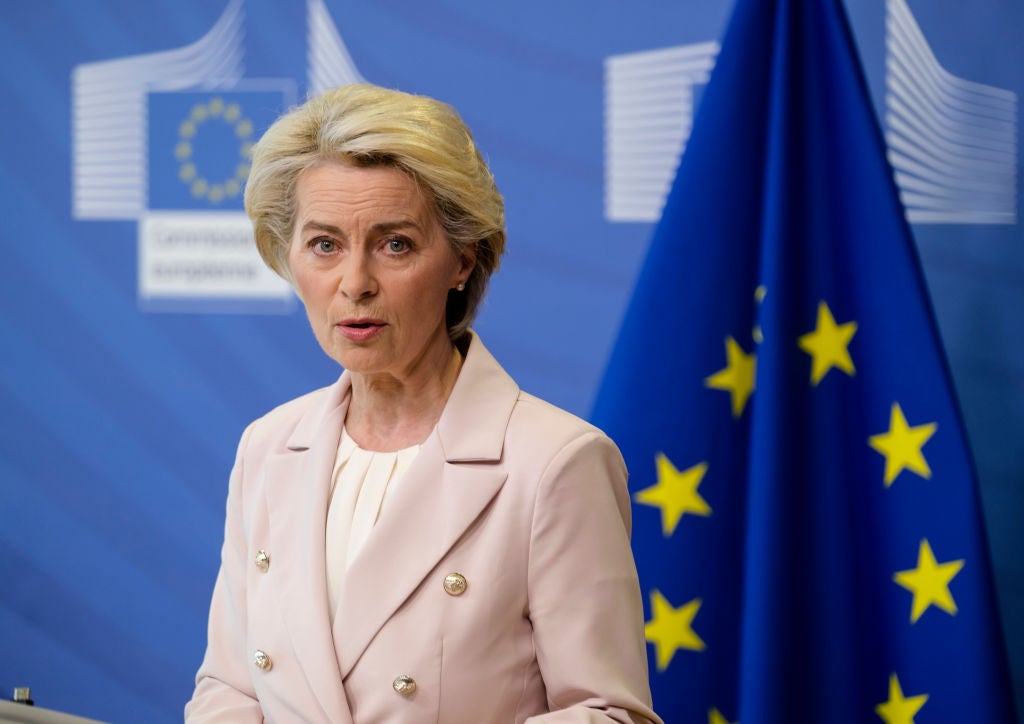In the week after Russia’s invasion of Ukraine, it seemed like every department in the European Commission pivoted to working on the EU’s response. This was especially true of its energy unit, which had to rapidly retool a planned strategy on dealing with rising energy prices to instead focus on reducing energy dependence on Russia.
On 8 March 2022, Commission President Ursula von der Leyen presented the result to the European Parliament: the REPowerEU strategy, outlining a plan to reduce Russian fossil fuel imports by two-thirds by the end of this year and completely phase them out by 2030. It was ambitious, but it was just a plan. Now the time has come to deliver in the form of legislation. Von der Leyen will unveil legislative proposals for REPowerEU next week (18 May) and they will then need to be approved by the European Parliament and national energy ministers in the EU Council.

Discover B2B Marketing That Performs
Combine business intelligence and editorial excellence to reach engaged professionals across 36 leading media platforms.

The big question is this: in the short and medium term, is the Commission’s focus going to be on replacing Russian fossil fuels with other fossil fuels, or will it seek to reduce fossil fuel use full stop? Campaigners worry it will be the former. “It seems we are switching from one form of gas to another,” says Dimitris Tsekeris from Friends of the Earth Europe. “Diversifying gas supplies with LNG [ liquified natural gas] from the US and other non-Russian sources cannot be a sustainable option.”
He continues: “[According to recent analysis by the think tank Ember], it is very clear that clean energy and energy efficiency can replace two-thirds of Russian gas imports by 2025. We don’t need to build new gas import infrastructure, coal power doesn’t need to be further extended. We should prioritise energy efficiency and clean energy deployment.”
The REPowerEU proposals
Tsekeris says from what he has seen so far in drafts, there will be encouraging and discouraging elements in the package next Wednesday. “We welcome initiatives on increased ambition for energy savings, energy efficiency, renewables deployment, efforts to minimise bureaucracy and heat pumps, but we deplore the [so far] complete lack of reference to citizens and energy communities,” he says. “We believe they have a crucial role in transforming the energy system.”
The core of the package will be about diversifying oil and gas supplies, reducing demand and ramping up the production of green energy in the EU. Diversifying supplies has been the main focus of Brussels and national capitals over the past month, with new deals being struck to import oil and LNG from alternative suppliers. This includes a deal with the US to supply an additional 15 billion cubic metres (bcm) of LNG this year, and up to 50bcm annually by 2030. Other deals have been struck with Norway, Japan, South Korea and Qatar.

US Tariffs are shifting - will you react or anticipate?
Don’t let policy changes catch you off guard. Stay proactive with real-time data and expert analysis.
By GlobalDataThe REPowerEU package will include an update to the 2017 Security of Supply Regulation for gas, which sets a common framework for how countries should approach this. The existing regulation already implements an early warning system to identify potential problems and a Gas Coordination Group comprising experts from the Commission, national authorities and leading stakeholders meets regularly to assess and discuss security of supply issues.
On 23 March, the Commission proposed an amendment to the Security of Supply Regulation to deal with market imbalances for energy, ensure sufficient EU gas storage and enhance the resilience of the EU’s energy system. That proposal requires EU countries to ensure their gas storage facilities are filled to at least 90% of their capacity by 1 November each year from 2023 (and 80% this year). However, this proposal is currently stalled in the Council.
The upcoming package will include longer-term measures to reduce the use of fossil fuels. This includes a solar strategy proposing a European Solar Rooftops Initiative to increase home and commercial installations. It will also include a proposal to deal with bureaucratic bottlenecks that prevent renewable energy projects from being approved, including a recommendation on faster permitting. There will be new EU guidelines on power purchase agreements.
“We need to move as fast as possible because winter is coming and there are issues related to disconnection and energy poverty,” says Tsekeris. “There must be some kind of prioritisation for measures in the short and medium term, moving away not just from Russian gas but away from fossil fuels in general. I hope that the priority will be given to clean energy and energy efficiency measures, but I am not very optimistic.





